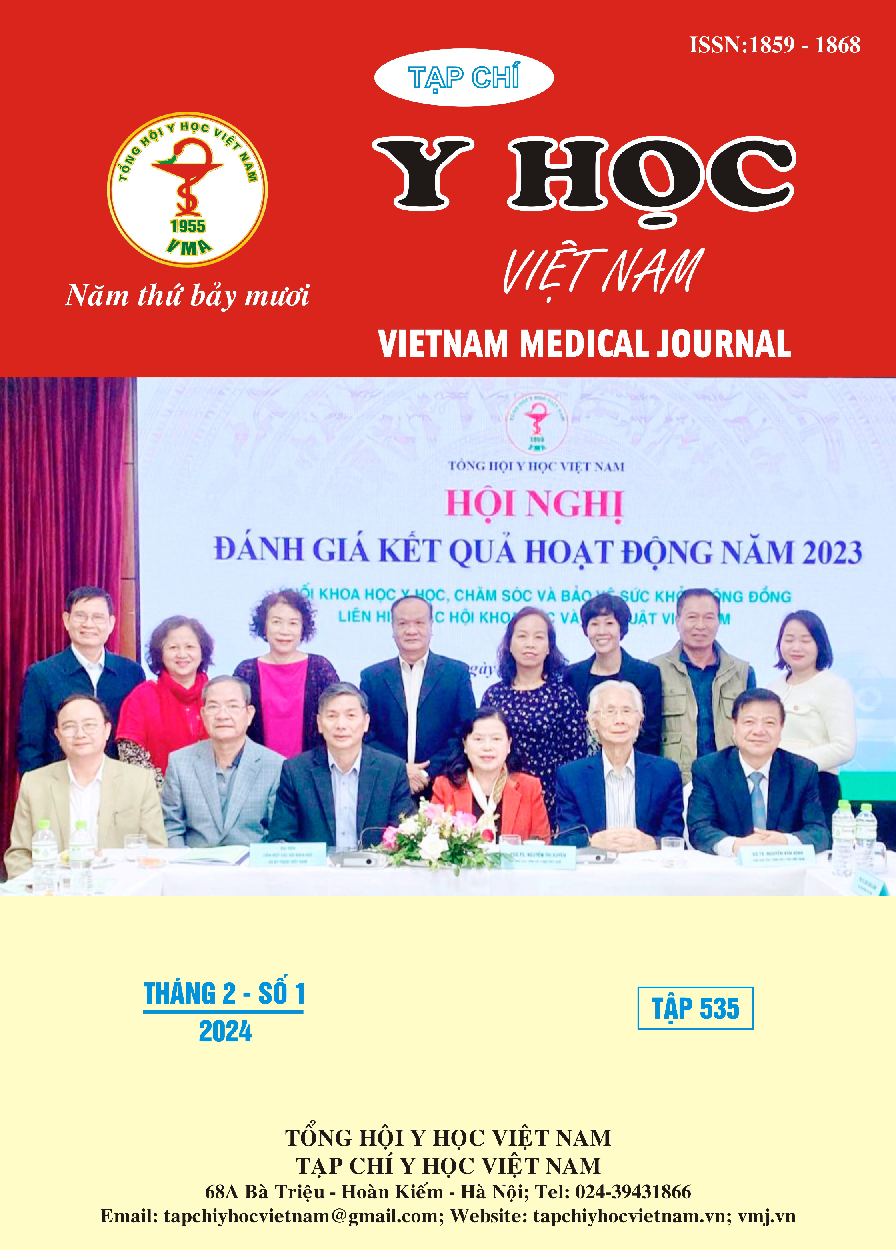POOR SLEEP QUALITY AND ITS RELATED FACTORS AMONG PATIENTS WHO HAVE RECOVERED FROM COVID-19 AT DISTRICT 6 HOCHIMINH CITY
Main Article Content
Abstract
A cross-sectional study was performed between October 2022 and May 2023 among patients who have recovered from a COVID-19 infection for at least 6 months. This study aims to assess the proportion of COVID-19 recovered adult patients that suffer from poor sleep quality and associated factors at at District 6, HCMC. Face to face interviews that used the Pittsburgh Sleep Quality Index (PSQI) questionnaire to assess the sleep quality of the participants. A total of 368 participants with an average of age was 51.98 ± 15.27 years were included in this analysis, 50.5% of participants had poor sleep quality. Factors associated with poor sleep quality include: age group, education level, fear of immunodeficiency, fear of post-Covid symtoms, tea and coffee using habits, symptoms during illness, and insomnia.
Article Details
References
2. Nelson KL, Davis JE, Corbett CF. Sleep quality: An evolutionary concept analysis. Nurs Forum. 2022;57(1):144-151. doi:10.1111/nuf. 12659
3. Wiersinga WJ, Rhodes A, Cheng AC, Peacock SJ, Prescott HC. Pathophysiology, Transmission, Diagnosis, and Treatment of Coronavirus Disease 2019 (COVID-19): A Review. JAMA. 2020;324(8):782-793. doi:10. 1001/jama.2020.12839
4. Châu, P. N. H. (2017). Chất lượng giấc ngủ và các yếu tố liên quan ở sinh viên hệ chính quy khoa Y tế Công cộng, Đại học Y Dược thành phố Hồ Chí Minh năm 2017. (Khóa luận Tốt nghiệp Bác sỹ Y học Dự phòng). Đại học y dược Tp.HCM, Tp.HCM. doi: http://www.fphhcm.edu.vn/ library/viewref.php?TYPE=TS&STT=2017131
5. Reichert, C. F., Veitz, S., Bühler, M., Gruber, G., Deuring, G., Rehm, S. S.,... Weibel, J. (2021). Wide awake at bedtime? Effects of caffeine on sleep and circadian timing in male adolescents - A randomized crossover trial. Biochem Pharmacol, 191, 114283. doi:10.1016/ j.bcp.2020.114283
6. Margalit, I., Yelin, D., Sagi, M., Rahat, M. M., Sheena, L., Mizrahi, N.,... Yahav, D. (2022). Risk Factors and Multidimensional Assessment of Long Coronavirus Disease Fatigue: A Nested Case-Control Study. Clin Infect Dis, 75(10), 1688-1697. doi:10.1093/cid/ciac283
7. Đức Minh N, Vinh Quốc N. Bước đầu đánh giá tình trạng mất ngủ không thực tổn và một số yếu tố liên quan. VMJ. 2021;499(1-2). doi:10.51298/ vmj.v499i1-2.222
8. Manzar MD, Bekele BB, Noohu MM, et al. Prevalence of poor sleep quality in the Ethiopian population: a systematic review and meta-analysis. Sleep Breath. 2020;24(2):709-716. doi:10.1007/s11325-019-01871-x


